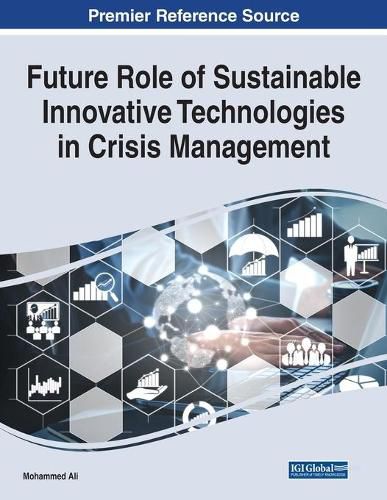Readings Newsletter
Become a Readings Member to make your shopping experience even easier.
Sign in or sign up for free!
You’re not far away from qualifying for FREE standard shipping within Australia
You’ve qualified for FREE standard shipping within Australia
The cart is loading…






This title is printed to order. This book may have been self-published. If so, we cannot guarantee the quality of the content. In the main most books will have gone through the editing process however some may not. We therefore suggest that you be aware of this before ordering this book. If in doubt check either the author or publisher’s details as we are unable to accept any returns unless they are faulty. Please contact us if you have any questions.
The increasing use of innovative technologies by global businesses has sparked debate about their application in crisis resolution. Resolution tools can be used by global businesses to manage various types of crisis situations, such as natural disasters, information security issues, economic downturns, health crisis situations, and sustainability issues in education, among others. Further study and consideration of the uses of technology in the areas of crisis and change management and intra-company communication practice in the context of global business must be done to ensure successful and sustainable businesses.
Future Role of Sustainable Innovative Technologies in Crisis Management raises awareness of the multifaceted field of new technology in crisis management that has resulted in a paradigm shift in the way contemporary industries and global businesses communicate and conduct their daily business operations. This book defines the scope of innovative technologies as the application of new technologies to support the resolution of various types of crisis situations to achieve regulatory compliance and improved risk management in an effective and automated manner. Covering topics such as sustainable business and disaster scenarios, this reference work is ideal for managers, entrepreneurs, researchers, academicians, scholars, practitioners, instructors, and students.
$9.00 standard shipping within Australia
FREE standard shipping within Australia for orders over $100.00
Express & International shipping calculated at checkout
This title is printed to order. This book may have been self-published. If so, we cannot guarantee the quality of the content. In the main most books will have gone through the editing process however some may not. We therefore suggest that you be aware of this before ordering this book. If in doubt check either the author or publisher’s details as we are unable to accept any returns unless they are faulty. Please contact us if you have any questions.
The increasing use of innovative technologies by global businesses has sparked debate about their application in crisis resolution. Resolution tools can be used by global businesses to manage various types of crisis situations, such as natural disasters, information security issues, economic downturns, health crisis situations, and sustainability issues in education, among others. Further study and consideration of the uses of technology in the areas of crisis and change management and intra-company communication practice in the context of global business must be done to ensure successful and sustainable businesses.
Future Role of Sustainable Innovative Technologies in Crisis Management raises awareness of the multifaceted field of new technology in crisis management that has resulted in a paradigm shift in the way contemporary industries and global businesses communicate and conduct their daily business operations. This book defines the scope of innovative technologies as the application of new technologies to support the resolution of various types of crisis situations to achieve regulatory compliance and improved risk management in an effective and automated manner. Covering topics such as sustainable business and disaster scenarios, this reference work is ideal for managers, entrepreneurs, researchers, academicians, scholars, practitioners, instructors, and students.